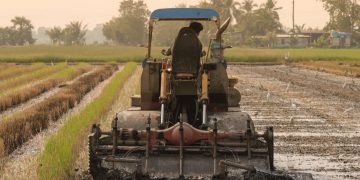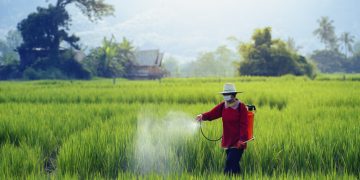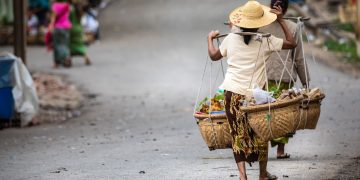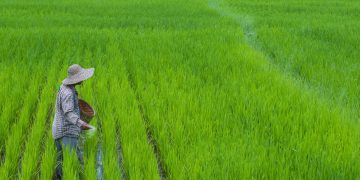Agricultural equipment retailers play an essential role in meeting the demand for machines and equipment needed for Myanmar’s agricultural production. Learn more about how the COVID-19 crisis is affecting this key sector.
This section includes assessments on state of the agrifood system in Myanmar based on the Myanmar Agricultural Performance Survey (MAPS) and key informant phone surveys. MAPS is a nationally and sub-nationally representative phone survey, conducted every 6 months on approximately 5,000 farming households. Assessments in this section will examine input use and input prices, farm management practices, agricultural outputs and output prices, and the impacts of shocks on production. This will be complimented by assessments on key actors in the agrifood systems, such as mechanization service providers, agricultural input retailers, agricultural commodity traders, rice millers and food vendors.
COVID-19’s impacts on Myanmar’s agri-food system
Since April 2020, the International Food Policy Research Institute, with Michigan State University, has undertaken analyses of secondary data combined with regular phone surveys of actors in Myanmar’s agri-food system to better understand the impacts of COVID-19.
Community perceptions of COVID-19’s impacts in Myanmar (October)
Managing COVID-19 requires a balance between preventing disease spread and minimizing economic disruption. In this blog post, IFPRI researchers utilize findings from a national COVID-19 survey to assess impacts and provide policy recommendations and long-term strategies.
Crop trading during the pandemic: Lessons learned in Myanmar (August)
Crop traders link farms with food processors and exporters. However, the pandemic has disrupted their normal operations. What policies can improve business conditions for traders and mitigate COVID-19 effects for farmers and consumers?
New evidence on the economic impacts of COVID-19 in Myanmar
A severe second wave of COVID-19 infections has led to lockdowns since mid-September—the second set of strict controls imposed after the initial outbreak in the spring. Derek Headey and colleagues have monitored monthly trends in poverty and food insecurity, and found the lockdowns have dramatic impacts.
- « Previous Page
- 1
- …
- 8
- 9
- 10
- 11
- 12
- 13
- Next Page »




